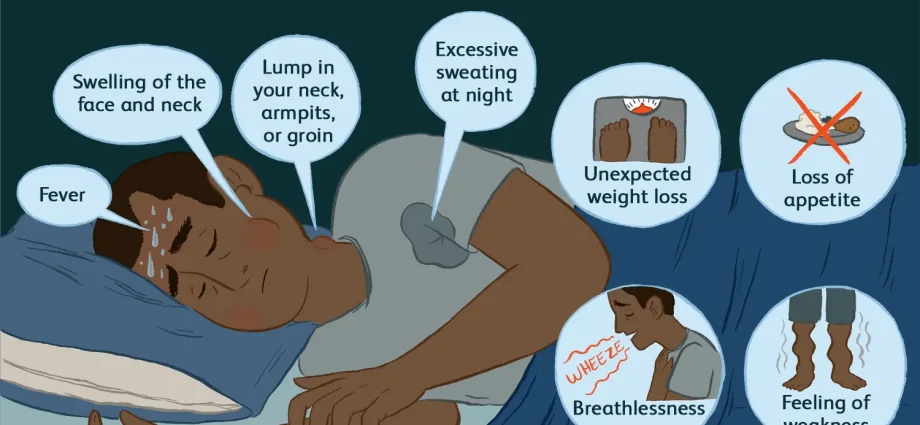80 percent Poles do not know the symptoms that accompany lymphomas, malignant neoplasms of the immune system – a street probe conducted in three large Polish cities – Poznań, Kraków and Warsaw showed.
Representatives of the Association of Friends of Lymphoma Patients “Przebiśnieg” conducted it among 1284 Poles on September 15 – on the World Day of Lymphoma Knowledge.
The analysis of the results showed that the symptoms of lymphomas were unknown to nearly 80 percent. people asked.
The most common symptoms of lymphoma are: enlarged lymph nodes, weakness, persistent itching of the skin, long-lasting cough or shortness of breath, significant weight loss and unreasonable fatigue, profuse night sweats, elevated temperature for no apparent reason (often mistaken for symptoms of infection).
These symptoms are similar to the common cold and are therefore often ignored. Meanwhile, if they persist for more than three weeks, they should be consulted with a doctor. This is important as some lymphomas can die within months if left untreated.
In Poland, about 8 are diagnosed every year. new lymphoma cases, and the number continues to grow. Experts attribute this increase mainly to the aging of the population, because the risk of developing lymphoma increases with age and most often affects people over 60 years of age.
There are approximately 70 types of lymphoma. They are divided into 2 main groups: Hodgkin’s and non-Hodgkin’s lymphomas.
These tumors are most often located in the lymph nodes, spleen, tonsils, bone marrow and blood. However, they can infiltrate other organs and parts of the body, e.g. stomach, breasts, heart and nose. Then they show symptoms similar to other conditions – for example, if the lymphoma is in the stomach, it could be symptoms of stomach ulcers. This makes diagnostics and treatment more difficult.
Due to the advancement of medicine, the effectiveness of the treatment of these cancers has increased significantly. Currently, many patients have a chance of a full recovery, and those whose lymphoma cannot be cured can live with it as if they were a chronic disease.
Treatment of people with lymphomas should take place in centers specialized in the treatment of neoplasms of the lymphatic system. The course of treatment depends on the type of lymphoma, the severity of the disease, and other factors assessed by the physician.
In order to increase public awareness of lymphomas, the association “Przebiśnieg” has been running an educational campaign for several years. “Expose Lymphoma.” This year’s edition of the campaign was held under the honorary patronage of the Polish Oncology Union and the Oncology Center, Instytut im. Maria Skłodowskiej-Curie in Warsaw. Roche Polska was the partner of the campaign. (PAP)
jjj / agt /










